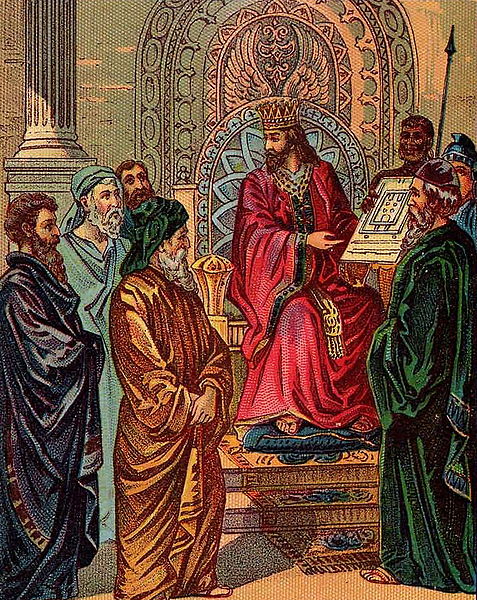 Last year, I had read and talked a bit about a book by Rob Bell called Love Wins.
It’s a bit of a controversial book, with a number of Christians feeling that it approaches Universalism, or the belief that all philosophical/theological beliefs have value and that they can all lead to God.
Last year, I had read and talked a bit about a book by Rob Bell called Love Wins.
It’s a bit of a controversial book, with a number of Christians feeling that it approaches Universalism, or the belief that all philosophical/theological beliefs have value and that they can all lead to God.
I had two separate friends, both of whom I respect and know that their faith is genuine, question the wisdom in promoting that book in any way. Both of these friends are full time missionaries.
I’m grateful for their challenges, because challenges like that force you to look deeply at your assumptions and beliefs so that you can determine whether they are showing you a blind spot in your own personal matrix of belief.
In the end, however, I did not feel that Bell’s views are harmful or heretical. Whether they are ‘right’ or not, I cannot say. I also read several books that would forcefully disagree with Bell, including Erasing Hell by Francis Chan (who I think is fantastic) and Radical by David Platt.
My friends made the point that if we don’t firmly and strongly believe that people are going to hell and we must tell them the gospel, we’re doing a great deal of harm. I certainly understand their urgency. They have devoted their lives to saving people from everlasting torture. You will not find me criticizing them, they are good and genuine people.
But what I got from Bell, and from C.S Lewis in The Great Divorce, and Peter Rollins in Insurrection is this question: Are we going about this in the wrong way?
Is evangelism of the true gospel supposed to be a numbers game?
“We presented the gospel to 100 people, 37 came forward and accepted Jesus as Lord and Saviour.”
Is that a good thing? Should I be happy about that? Seriously, I’m asking.
Do I know for sure that those 37 people have actually made a radical, life changing decision? Does that matter? Have we done our Christian duty by signing them up?Whether they make the payments or not, well, that’s not my problem.
Isn’t that the kind of attitude that caused the current American mortgage crisis? Overzealous sellers gave loans to people who couldn’t or wouldn’t actually follow through on the commitment. In the end it causes a financial crisis. I would argue that we are seeing an enormous spiritual crisis. We’ve got a whole bunch of people who say they’re committed to following Jesus, but aren’t actually willing to pay the price.
What about the 63 who didn’t? Have they had their chance, so now they can burn in hell without it being my fault? Do we just move on to the next group of potential converts? Have we ‘planted seeds’, so that our apparent failure isn’t really a way to judge our true results?
I read a book recently called Insurrection by Peter Rollins. He wants to help un-Christianize the world. To de-evangelize them.
He makes the argument that if you offer people eternal life in God and they accept it, they’re not really after God, they’re after eternal life. That we can’t just throw God in as a box they can’t un-check when they’re completing their purchase.
If we throw God at people as a quick fix to all their problems, why would they see him as anything more than magic genie?
Jesus healed 10 lepers, only 1 returned to thank him and hear Jesus say “Rise and go, your faith has made you well.” (Luke 17:19)
The other 9 didn’t want a Lord or Saviour, they just didn’t want leprosy.
When the rich young ruler turned down Jesus’ call to sell all he had and follow him, Jesus didn’t run after him warning him of hell.
When Jesus went to the parties where ‘disputable sinners’ hung out, the Pharisees were angry that he didn’t spend his time condemning them, rather he was treating them as people.
Jesus protected and forgave one adulterer before she ever repented! (John 8:7)
In other words, he spent much of his time protecting the downtrodden from the religious establishment of that day. The ‘church’, if you will.
I’m absolutely not saying we shouldn’t do missions. Or that we should not spread the Gospel of Jesus Christ. I’m saying that I think we’ve spent a lot more time spreading our own message. And that I think our message sucks.
It’s either ‘Come get a great free gift when you activate your God account’ or ‘You better start acting right or God is gonna get you’.
I think the altar call is possibly the greatest mistake we’ve ever invented.
You can’t trick people into loving or following God. And doing so harms them and the church.
The true gospel must be lived and seen. You think if I took a bullhorn to India I could spread the gospel better than Mother Teresa?
I used to feel guilty because I wasn’t always warning people that they were on the way to hell and that they needed to accept Jesus.
Now, I try to help them with their problems. I listen to them. I respect them as people. I ask them questions about what they think and believe. And I try to live a life dedicated to being a disciple of Jesus Christ. I apologize when I screw up. I admit where I fall short. And I purposely try to improve this world. Why? Because I serve a God of hope and love. Because God said to love people, so I’m doing my best to carry that out.
The only way people are going to care about what I believe is if they see it causing me to act different. And if people aren’t asking me why I act the way I do, I guess I’m not acting any differently than anybody else, so who cares what I believe? Shame on me if I then resort to threats or tricks to cover up the fact that I’m not living the life Jesus said he was giving me - the abundant life.












 Science isn’t sure whether our universe is actually infinite or not, but they say it’s “at least” 93 billion light years in diameter. One light year equals 5,865,696,000,000 miles. I’ll tell you what, let’s just go with ‘really, really big’.
Science isn’t sure whether our universe is actually infinite or not, but they say it’s “at least” 93 billion light years in diameter. One light year equals 5,865,696,000,000 miles. I’ll tell you what, let’s just go with ‘really, really big’.










